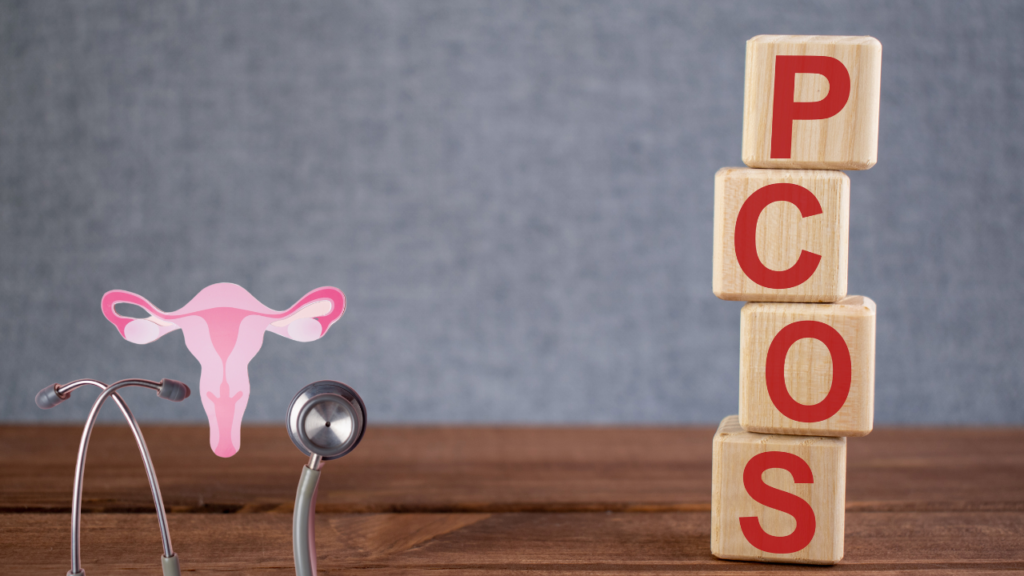
Polycystic ovary syndrome (PCOS) is a common health issue that impacts about 1 in 10 women It causes a disturbance in hormones and metabolism, which can affect overall hormonal health and how it impacts the body. PCOS is also a common reason for infertility, but the good news is that it can be treated. Our confident hormone club will guide you about pcos natural treatments.
What is PCOS?
PCOS is a hormonal disorder typically characterized by the excessive production of androgen male sex hormones, typically found in small quantities in women, or insulin insensitivity affecting the ability of an ovary to release an egg to ovulate. While the name implies the presence of multiple small cysts (fluid-filled sacs) in the ovaries, it is worth noting that not all women with PCOS have cysts.;
Types of PCOS
- Insulin-Resistant PCOS
- Androgenic (pcos with high androgen levels)
- Inflammatory PCOS
- Hidden-cause PCOS
PCOS symptoms
Common symptoms women with polycystic ovary syndrome (PCOS) may observe:
- Irregular periods missed periods, or very light periods
- Enlarged ovaries with multiple cysts
- Excessive body hair growth (hirsutism) in areas like the chest, stomach, and back
- Weight gain, particularly around the abdomen
- Acne or oily skin & oxidative stress
- Male or female-pattern baldness or thinning hair in the crown of the scalp
- Difficulties with fertility
- Small, fleshy growths on the neck or armpits (skin tags)
- Dark or thick patches of skin on the neck’s back, in the armpits, and beneath the breasts.
While there is no cure for PCOS, it can be managed with lifestyle changes and medication. If you experience these symptoms, you should consult with a naturopathic doctor at Make Care Health and join the Confident Hormone Club, for hormone guidance and understanding of potential treatment options.
PCOS a Chronic Illness
Polycystic ovary syndrome (PCOS) is a long-term health condition that impacts women in their reproductive years and beyond. It is caused by hormonal imbalances that can result in various effects on the body. These imbalances may lead to the risk of developing significant health issues:
- More than half of women with PCOS develop type 2 diabetes before the age of 40.
- If you have PCOS and become pregnant, you are at risk of developing diabetes during pregnancy, which can be harmful to both you and your baby. It also increases the chances of developing type 2 diabetes later in life for both mother and child.
- Women with PCOS have a higher risk of heart disease, and this risk increases as they get older.
- PCOS can contribute to high blood pressure, which can damage the heart, brain, and kidneys.
- Living with PCOS may lead to high levels of “bad” cholesterol (LDL) and low levels of “good” cholesterol (HDL), which increases the risk of heart disease.
- PCOS is associated with sleep apnea, a disorder where breathing temporarily stops during sleep. Sleep apnea raises the risk of heart disease and type 2 diabetes.
- Polycystic ovary syndrome can cause plaque buildup in blood vessels, leading to blood clots that can result in a stroke.
Is it possible to have PCOS without experiencing any symptoms?

Yes, it is possible to have PCOS and not display any noticeable symptoms. Many individuals remain unaware of their condition until they encounter difficulties with fertility or unexplained weight gain. Additionally, there is a chance of having mild PCOS, where the symptoms are not severe enough to be easily noticeable.
Tip: Intermittent fasting can help your weight loss journey but you have to follow the instructions of your doctor.
Can PCOS make you more likely to have a miscarriage?
While having PCOS can raise the chances of experiencing certain pregnancy complications, most women with PCOS are still able to have successful pregnancies. However, there are some potential risks associated with PCOS and pregnancy.
These risks include a higher likelihood of developing gestational diabetes, preeclampsia, and high blood pressure during pregnancy. Increased possibility of giving birth prematurely (before 37 weeks) or having a C-section due to factors like obesity, diabetes, or high blood pressure. It’s important to work closely with Dr.Kaylee to monitor and manage these risks throughout your pregnancy using natural remedies to maintain your health.
Is Pcos sexually transmitted?
No, there seems to be some confusion regarding whether PCOS can be sexually transmitted. It is essential to clarify that PCOS is not a sexually transmitted condition. PCOS is a hormonal disorder that is not caused by sexual activity or transmitted through sexual contact.
Instead, it is believed to result from various factors such as genetics, hormonal imbalances, and lifestyle factors. If you have concerns or questions about PCOS, it is recommended to consult with a healthcare professional who can provide accurate information and guidance.
Understanding PCOS Belly Fat and Its Impact
PCOS comes with various physical symptoms, including something called “PCOS belly fat.” Which is not healthy fat. Although not everyone with this hormonal condition will have it, many may experience weight gain around the abdomen and waist, which can lead to health risks.
Women with PCOS often have higher levels of male hormones, causing fat to accumulate in a male pattern, such as excess belly fat. Other features like facial excess hair may also appear. It’s important to note that PCOS can contribute to the accumulation of cortisol belly fat too.
Signs of insulin levels resistance pcos
Insulin resistance is a prevalent symptom of PCOS. Many women with PCOS experience insulin resistance, which means that their bodies produce insulin but are unable to use it efficiently. This condition raises the risk of developing type 2 diabetes. In women with PCOS, certain indicators of insulin resistance may include:
- heavy menstrual bleeding
- painful periods
- difficulty conceiving
- heightened facial hair growth
- weight gain in the waist region
- The presence of dark patches on the skin around the waist, neck, armpits, and groin area.
- One noticeable sign of insulin resistance is the presence of dark, velvety patches of skin on the lower part of the neck, armpits, groin, or under the breasts.
Improve insulin resistance with natural treatment you can book a free discovery call.
PCOS Natural Treatments
If PCOS is not treated, it can cause long-term problems like trouble getting pregnant, metabolic syndrome, being very overweight, diabetes, and heart disease. Regular exercise can improve your PCOS. Women with Patients with PCOS are also more likely to get a type of cancer called endometrial cancer. Finding and treating PCOS early can help prevent these problems. Treatment options for PCOS include making changes in your lifestyle or taking medication.
Dr. Kaylee, a naturopathic doctor, offers an understanding of treatment for individuals seeking to manage PCOS within the Confident Hormone Club. As a club member, you will benefit from monthly health courses and open office hours, where you can engage in Q&A sessions with Dr. Kaylee herself.
The Confident Hormone Club serves as a comprehensive and supportive resource for managing PCOS and optimizing your overall hormonal health.
This platform includes a vast array of valuable resources such as past recordings, informative modules, treatment cheat sheets that can be shared with your healthcare providers, and a wide range of other helpful health resources which reduces stress.

